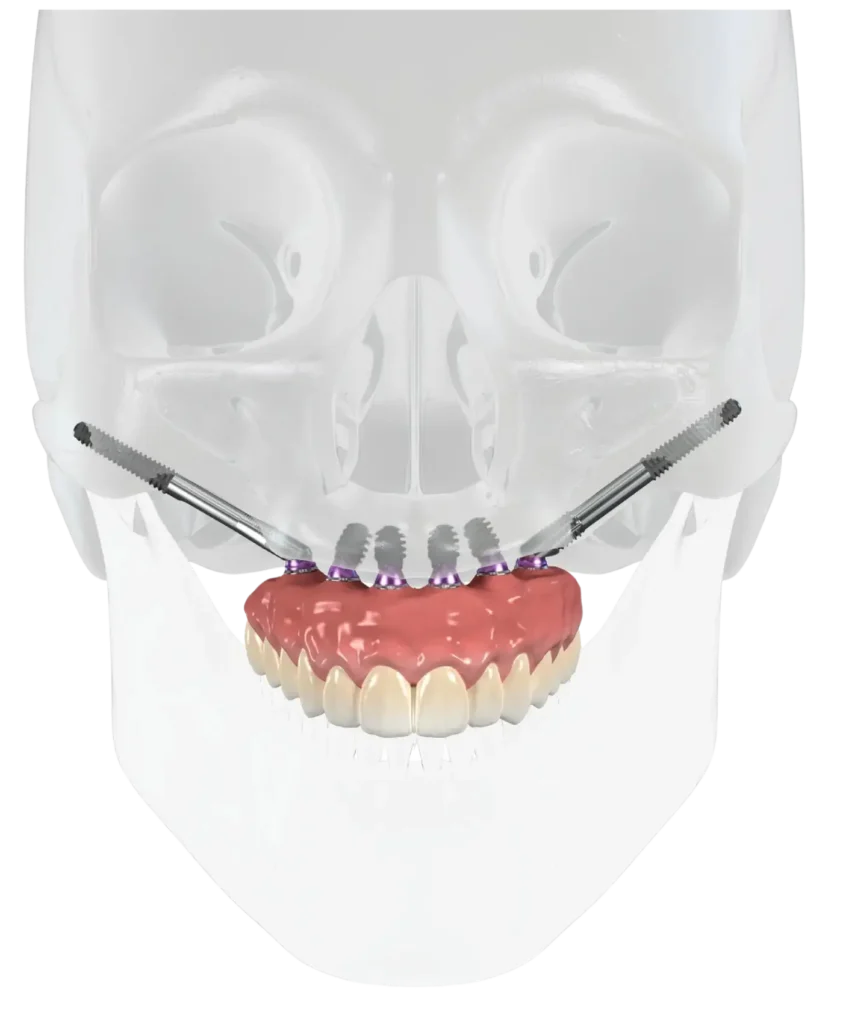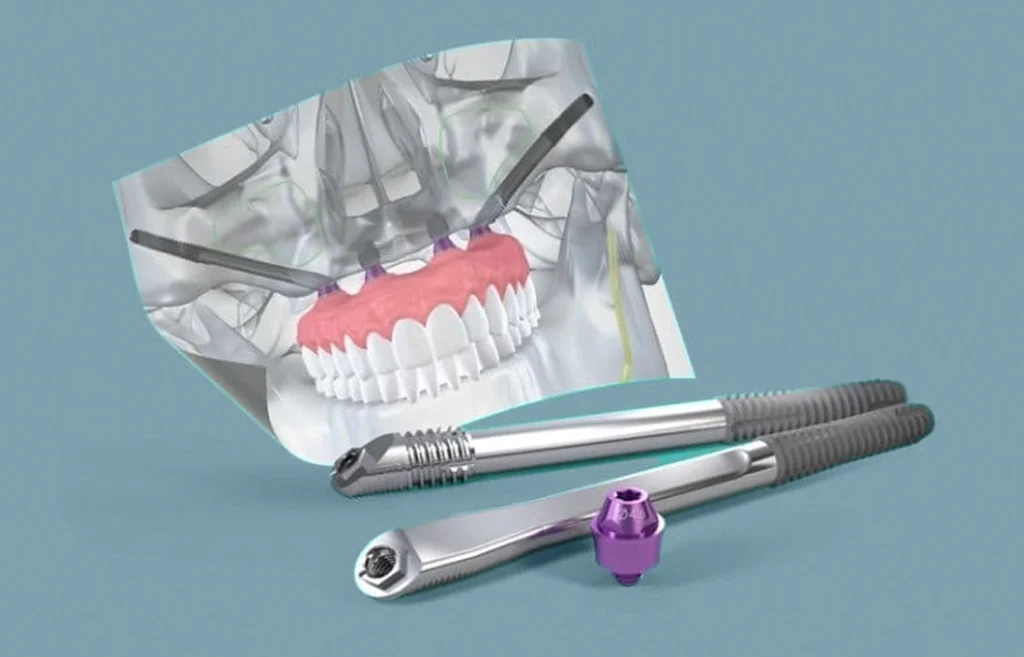Permanent
Zygomatic Implant
All On Four Implants are a premium solution for patients with severe bone loss who are told that traditional implants are not possible.
Contact us now and we will create your customized treatment plan together.


What is a Zygomatic Implant?
Comparison of Zygomatic Implants with Other Implant Methods
Zygomatic implants differ significantly from traditional dental implants that are placed directly into the upper jawbone. In patients with severe maxillary atrophy (bone loss), traditional implants may not provide sufficient support, requiring bone grafting or sinus lifts. Zygomatic implants, however, bypass these procedures by using the denser, more stable zygoma bone. Compared to the All-on-4 implant method, which uses four implants to support a full arch, zygomatic implants offer a more direct solution, especially for those with extensive bone loss, reducing the need for complex bone grafting.


Who is a Suitable Candidate for Zygomatic Implants?
Zygomatic implants are ideal for patients who have experienced severe bone loss in the upper jaw, often due to edentulism (lack of teeth) or conditions like osteoporosis. Patients who would otherwise require bone grafting or sinus lifts may find zygomatic implants to be a more efficient option. However, not all patients are suitable candidates, particularly those with uncontrolled diabetes, immune system disorders, or active oral infections. A comprehensive evaluation using CT scans and 3D imaging is essential to determine candidacy.
Anesthesia and Sedation for Zygomatic Implants
Zygomatic implant surgery is commonly performed under general anesthesia due to the complexity of the procedure. However, in some cases, conscious sedation (such as intravenous sedation) may be used, along with local anesthesia at the surgical site to numb the area. The choice between general anesthesia and sedation depends on the patient’s medical history and the complexity of the case. Local anesthesia alone is typically not enough due to the deep location of the zygomatic bone.

Recovery Process and Care Recommendations
After Zygomatic Implant Surgery
The recovery after zygomatic implant surgery varies but generally follows these steps:
Immediate Postoperative Period (0-7 days)
Expect swelling, bruising, and discomfort, which can be managed with pain relievers and ice packs. Patients should rest and avoid physical activity during this period.
Short-Term Recovery (1-3 weeks)
Patients are advised to follow a soft-food diet and avoid direct contact with the implants. Antibiotics and anti-inflammatory medications are typically prescribed to prevent infection and reduce inflammation.
Over this period, the implant will integrate with the bone through a process called osseointegration. Regular follow-up visits are necessary to ensure the implant is healing properly.
Frequently Asked Questions about Zygomatic Implants
Find quick answers to the most common questions about our services.
Is the Zygomatic Implant Procedure Painful?
Most patients report minimal discomfort due to general anesthesia or sedation. Postoperative pain can be managed with prescribed medication.
Can I Eat Normally After Zygomatic Implant Surgery?
How Long Do Zygomatic Implants Last?
With proper care, zygomatic implants can last many years, with some lasting as long as 10-20 years or more, similar to traditional dental implants.
Can Zygomatic Implants Be Used for Full Arch Replacements?
Yes, zygomatic implants are an effective solution for full arch replacements, especially for patients with severe bone loss in the upper jaw.
What Are the Risks of Zygomatic Implants?
As with any surgical procedure, there are risks, including infection, nerve damage, and implant failure. However, with proper planning and technique, the risk of complications is minimized.
Post-Surgery Dos and Don’ts for Zygomatic Implants
Do’s:
- Follow post-surgical care instructions: Adhere to guidelines provided by your surgeon, including taking prescribed medications, maintaining oral hygiene, and attending follow-up appointments.
- Eat soft foods: Stick to a soft-food diet for the first few weeks to avoid putting stress on the implants.
- Rest and avoid physical strain: Minimize physical activity during the first week of recovery to allow your body to heal.
- Use ice packs: Apply ice packs during the first 48 hours to reduce swelling and bruising.
- Maintain oral hygiene: Gently clean your mouth using an antimicrobial rinse or a soft toothbrush.
Don’ts
- Avoid smoking: Smoking can impair healing and increase the risk of implant failure. It is advised to refrain from smoking for at least 3-6 months post-surgery.
- Don’t chew on hard foods: Avoid chewing on tough foods or anything that may place stress on the implants for the first few weeks.
- Avoid alcohol or carbonated drinks: Alcohol and fizzy drinks can irritate healing tissues and interfere with medications.
- Don’t touch the surgical site: Avoid disturbing the implant area to prevent infection.
- Don’t ignore signs of infection: If you notice increased pain, swelling, or discharge, contact your dentist immediately.
